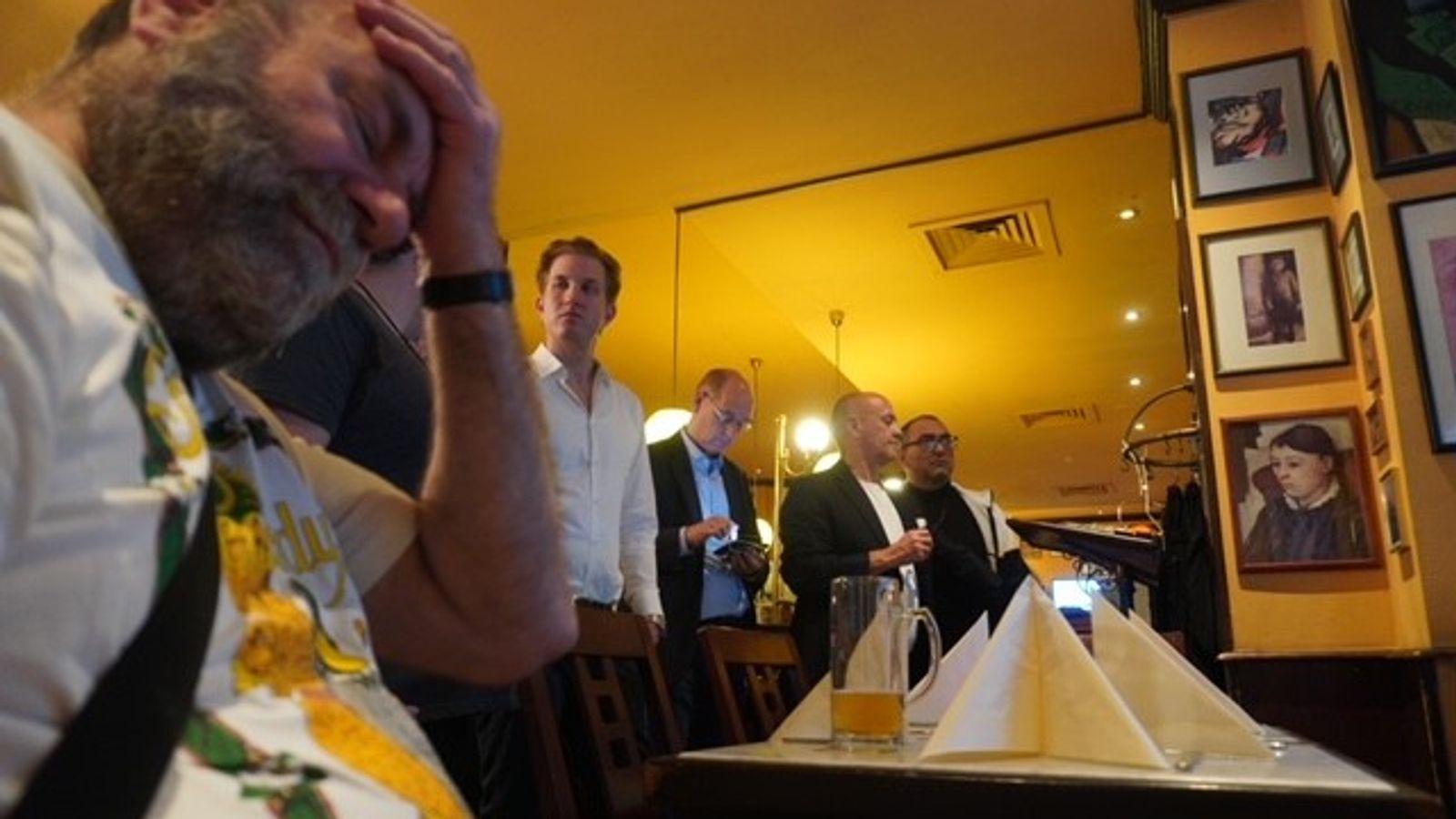It has not been a great election for Angela Merkel’s own party, the CDU.
Its candidate Armin Lashert was castigated in the polls, caught on camera laughing as the country’s president made a speech after the country’s devastating floods.
But they had hoped for better, especially after a rally in the polls in the final leg of this contest. They were gathering from early evening in bar R 23 buying drinks hoping to have something to celebrate.
Please use Chrome browser for a more accessible video player
As exit polls and official projections predicted a tie between them and rivals, the SPD, there was a palpable sense of deflation.
Sandra Khalatbari, candidate for the Berlin parliament told Sky News they weren’t the figures she’d hoped for.
German election: Angela Merkel’s party ‘hurt’ as exit polls show leadership rivals are tied in vote to decide next chancellor
Germany goes to polls in election to decide Angela Merkel’s successor
Germany’s first election in 16 years without Merkel isn’t just a political occasion, but also a cultural moment
“It is disappointing,” she said.
“In the last one-and-a-half weeks we were raising our votes and we were very hopeful that it’s going to be successful but now it is kind of disappointing.”
The right of centre CDU, Merkel’s party, should have done better. Its chancellor has completed 16 years in power and is one of the most popular politicians in German history. Yet her party has not been rewarded by voters.
There was some consolation in the party’s recovery from its meltdown early on, but campaigner Martin Feldmann told Sky News, only outright victory is what counts.
“The numbers in the past few weeks were disturbing – now it’s about 25%.
“This is okay but only because of the numbers in the past few weeks. What we want is to be number one. At the moment we are not and I’m not happy about this.”
As CDU activists took consolation in large servings of German lager, the period of reflection was already beginning. For some, the problem was the candidate or how voters perceived him on the doorstep.
Regional party organiser Christophe Lehmann told Sky News the problem was the candidate.
He said: “We had to drive against the wind.”
“Because many people didn’t understand why we picked Laschet. Voters were not convinced.”
Former member of Berlin parliament Cordula Kollotschek told Sky News, Laschet is not political box office but that wasn’t the only problem.
“He has not the charisma, he’s not really a star, he is not really good looking in the media – that’s really important in a time like now but also I don’t think we have the answer especially for young people for things like climate change.”
Please use Chrome browser for a more accessible video player
On the bar television, coverage continued in almost funereal tones. German political coverage is serious and sombre. Most had drifted away from the screen though, to drink outside on a balmy late summer evening, or head off home.
It’s a longer game now.
Whoever clinches the biggest share of Bundestag seats, haggling and horse-trading starts to form a coalition and with everything so close – that may take a while.






















